Description
ABSTRACT
Nigeria’s Finance Act 2019 and the Significant Economic Presence Concept: Prospects and Challenges
Jude J. Odinkonigbo* and Emmanuel Onyeabor**
The emergence of the digital economy appears to have disrupted the existing international tax rules regulating cross-border transactions. The globally accepted nexus and profit allocation rules are under serious challenge by countries who feel shortchanged with the continued adherence of the extant rules, which have kept them (the shortchanged countries) from having their slices of the digital cake harvested from their market jurisdictions by businesses with the permanent establishment, fixed base or physical connection in other economies. Although the OECD/G20 Inclusive Framework has had the issue of tax challenges emanating from digitalisation (Action 1) as one of its top priorities in the BEPS Project, there is no global consensus yet (not even among the OECD countries) on how and to what extent the current nexus and profit allocation rules should be modified. Like some countries, Nigeria has adopted a unilateral approach to the problem by enacting the Finance Act 2019, which introduced the ‘significant economic presence’ test in its corporate income tax regime to ensure that corporate incomes generated from the country’s digital space are accounted for. This article examines the new tax lexicon introduced by the Finance Act, its prospects and possible challenges that will militate against its enforcement. The paper concludes that a multilateral approach to the problem of the digital economy is preferable to the current unilateralism, which may lead to multiple taxation, trade war and disruption of global trade and harmony.
Keywords: Nigeria, Digital Taxation, Finance Act 2019, International Tax Rules, Trade War.
INTRODUCTION
With digital technology, global connectivity is now the norm.1 This has facilitated remote participation of businesses in places never imagined. Incomes are earned in market jurisdictions that cannot rely on the extant international tax rules to levy taxation. Indeed, the emergence of the digital economy, which appears to have disrupted the existing nexus and profit allocation rules that are based on permanent establishment, fixed base or other physical connections with a source country, threatens the revenue base of source countries – especially when there is failure to align rights to tax with economic activities remotely taking place in the digital spaces of market jurisdictions concerned.
Of course, base erosion and profit shifting (“BEPS”) problems arise due to gaps or loopholes in international tax rules. Organisation for Economic Corporation and Development (“OECD”) recognises this problem in its Action 1, designed to address tax challenges arising from the
* * LL.B, LL.M (Dalhousie), LL.M (Yale), PhD (Osgoode). Jude is a Counsel in the Tax, Dispute Resolution, Compliance, Investigation, & White Collar-Defence practices of Templars; and a Senior Lecturer at the Faculty of Law of University of Nigeria, where he teaches both domestic and international taxation laws. E-mails: ju**************@**********aw.com
** LL.B. Emmanuel is an Associate in the Tax and Commercial Disputes Resolution practices of Banwo & Ighodalo. E-mails:em****************@***il.com; eo*******@***********lo.com.
- Moshe Beauford, ‘Connectivity is Chief as Remote Work Becomes Norm’ (UC Today, 29 April 2020) accessed 29 August 2021.

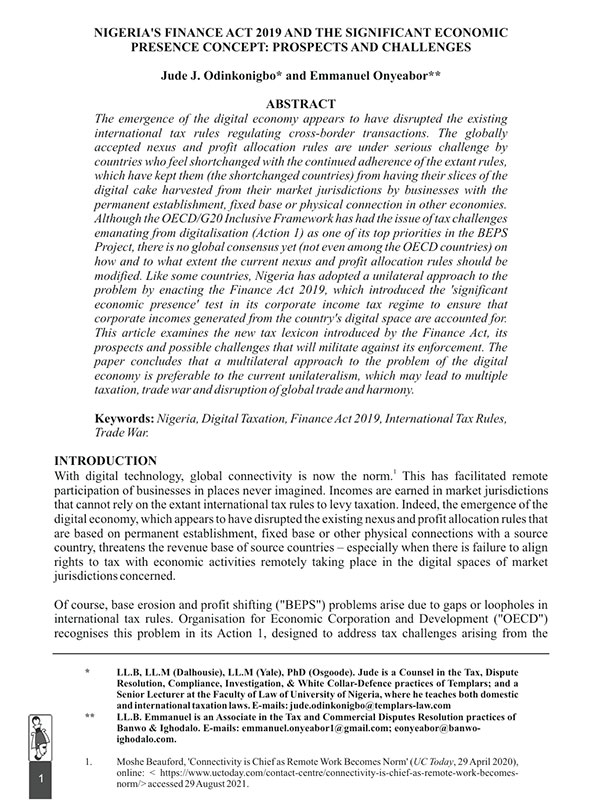
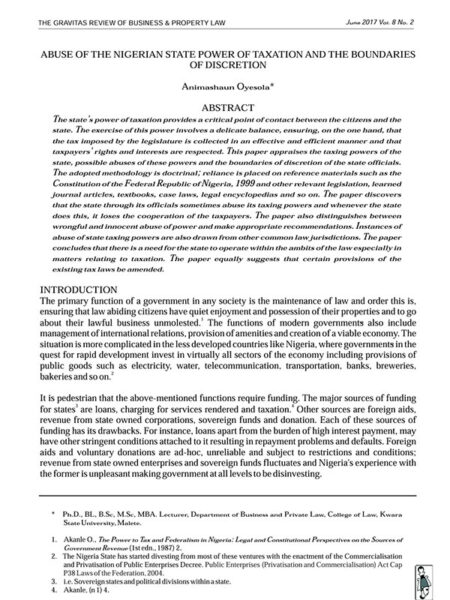
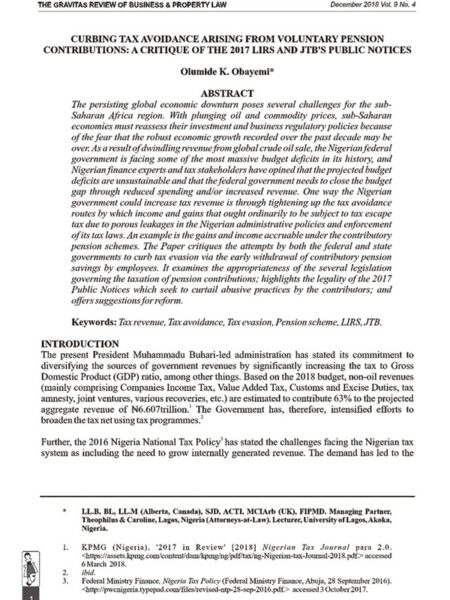
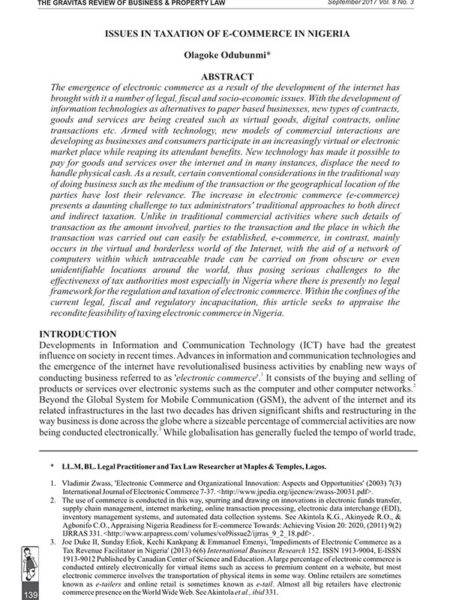
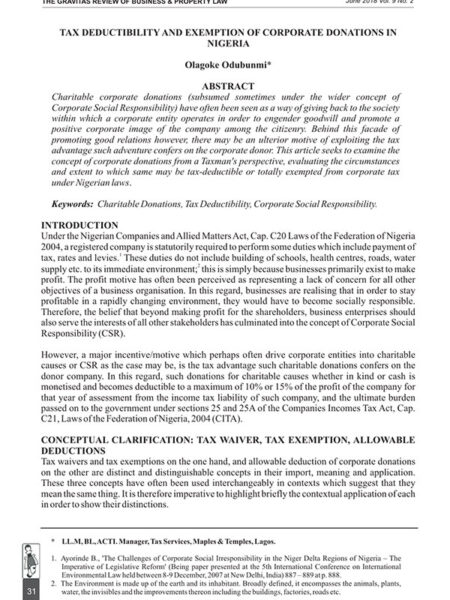


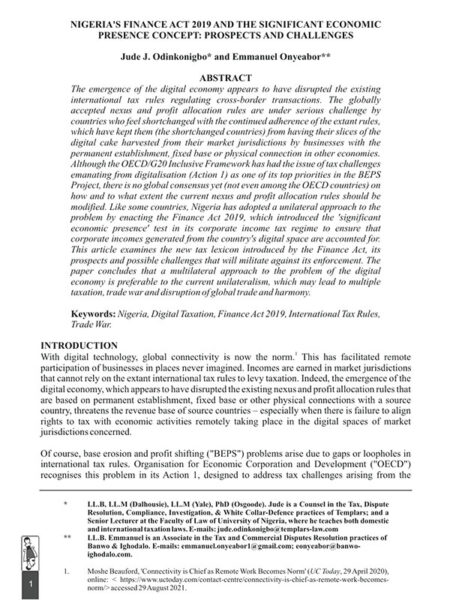
Reviews
There are no reviews yet.